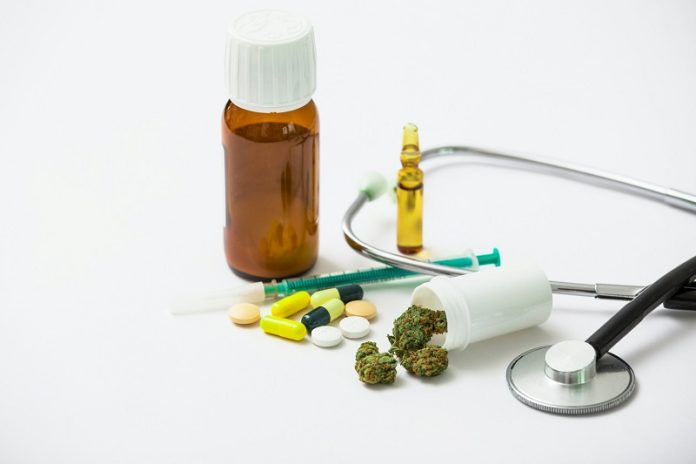
A recent study, published in The American Journal of Drug and Alcohol Abuse, has found that cannabis is not effective in treating opioid addiction.
This finding challenges some current U.S. treatment programs that offer cannabis as an alternative to opioids and those that require patients to stop using cannabis before receiving treatment for opioid addiction.
The study, which analyzed data from 1999 to 2019, found that cannabis use does not significantly affect opioid use, which is a crucial issue given the ongoing opioid crisis in the U.S.
The crisis is severe, with around 120 people dying each day from opioid overdoses, costing the U.S. economy over $1 trillion annually.
Opioids, including prescription drugs like oxycodone and illegal drugs like heroin, are effective painkillers but highly addictive.
The growing acceptance of cannabis, now legally recognized for medicinal use in thirty-seven states and Washington D.C., has led some to believe that it could be a safer alternative to opioids or even help treat opioid addiction.
However, this study suggests that using cannabis does not reduce the non-medical use of opioids.
Gabriel Costa, a researcher from the University of Ribeirão Preto in Brazil, along with Dr. Joao P. De Aquino of Yale University and their colleagues, conducted a thorough review and analysis of existing research on how cannabis influences opioid use.
They looked at ten longitudinal studies involving 8,367 individuals undergoing treatment for opioid addiction with medications like buprenorphine, methadone, or naltrexone.
Over an average of 10 months, these individuals were monitored for their non-medical opioid use – this includes taking opioids not prescribed to them, taking more than prescribed, or using without a prescription.
The study compared this behavior between those who used cannabis and those who did not.
The results showed no significant link between cannabis use and non-medical opioid use rates. This finding is critical as it neither supports the concern that cannabis increases non-medical opioid use nor endorses its use as an effective treatment for opioid addiction.
Dr. De Aquino emphasized the need for treatment programs to adopt individualized approaches rather than enforcing cannabis abstinence as a condition for receiving opioid addiction treatment.
The focus should be on assessing each patient’s unique situation, including any cannabis use disorder, pain management needs, and co-occurring psychiatric conditions like depression and anxiety.
The researchers also noted the need for more experimental studies on cannabis and its components to thoroughly assess their safety and effectiveness in treating opioid use disorder.
This is particularly urgent as potent synthetic opioids like fentanyl become more available.
The study’s limitations include inconsistencies in how the reviewed studies were conducted, including how cannabis and opioid use were measured and variations in baseline opioid use status.
While these findings apply to general cannabis use, they might not hold for individuals with a cannabis use disorder.
Overall, the study urges caution in considering cannabis as a treatment for opioid addiction and highlights the importance of individualized, evidence-based treatment approaches for those struggling with opioid use disorder.
If you care about pain, please read studies about vitamin K deficiency linked to hip fractures in old people, and these vitamins could help reduce bone fracture risk.
For more information about wellness, please see recent studies that Krill oil could improve muscle health in older people, and eating yogurt linked to lower frailty in older people.
The research findings can be found in The American Journal of Drug and Alcohol Abuse.
Copyright © 2024 Knowridge Science Report. All rights reserved.



